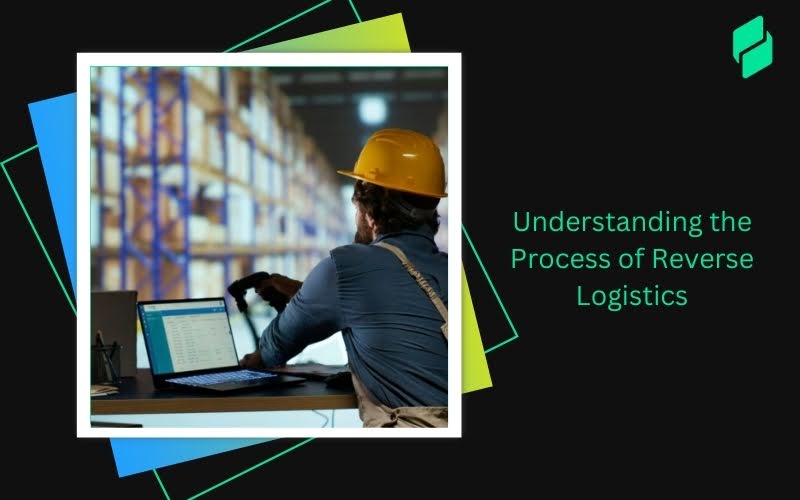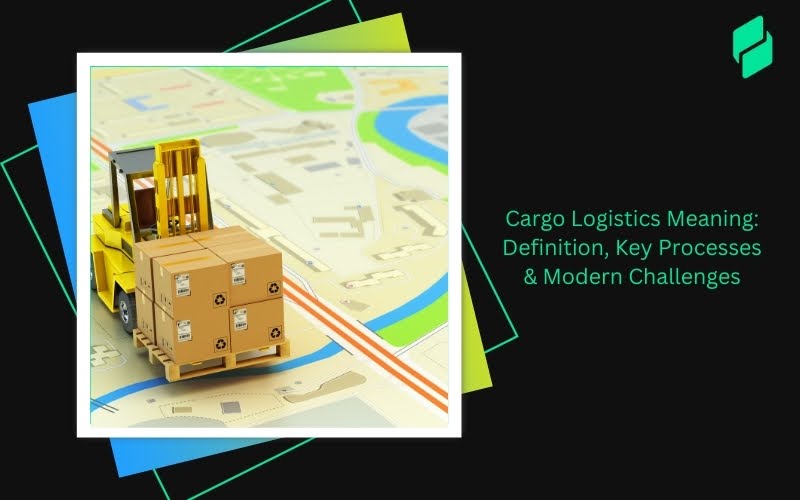Optimize your business: use unlimited savings with Pazago fulfilled now!
Get Started ->When it comes to international trade, customs clearance is one of the most critical and often complex processes that exporters and importers face. For Indian exporters, navigating customs regulations, ensuring compliance, and handling logistics can be daunting. This is where a Customs House Agent (CHA), also known as a broker, plays a pivotal role in simplifying the customs process.
Let's gain a deeper understanding of what a Customs House Agent does, why it is essential for CHA in export and import, and how partnering with the right CHA can help you streamline operations, reduce costs, and avoid delays in your international shipments.
TL;DR (Key Takeaways)
- Customs House Agents (CHA) are essential for managing export and import processes, ensuring smooth customs clearance and regulatory compliance.
- Choosing the right CHA requires evaluating their experience, licence, track record, services, cost, and the technology they use.
- Advanced technologies, such as blockchain, IoT, and AI, are reshaping customs processes, making them faster, more efficient, and more secure.
- Pazago streamlines the export and import process by integrating document management, real-time tracking, quality inspections, and finance into a single platform.
- Working with a CHA and leveraging digital tools, such as Pazago, can reduce turnaround time, save costs, and ensure smoother international trade operations.
Also read: How Logistics Operations and Supply Chain Works
Who is a Customs House Agent or Customs Broker?
A Customs House Agent (CHA) is a licensed professional or agency that facilitates the movement of goods through customs for exporters and importers. CHAs play a key role in ensuring that goods comply with international trade regulations, ensuring that all required paperwork is in order, and that shipments are cleared efficiently.
Now, let's understand their key responsibilities in managing customs clearance and facilitating smoother international trade.
Key Responsibilities of a Customs House Agent

A Customs House Agent (CHA) plays a pivotal role in ensuring that your goods move efficiently through customs. For Indian exporters, having a skilled CHA can make all the difference in managing the complexities of international trade, especially when dealing with customs and import/export regulations. Below are the key responsibilities of a CHA:
1. Expert Knowledge of Customs Regulations
A CHA is highly knowledgeable about the complex and ever-changing regulations governing international trade. For Indian exporters, a CHA ensures compliance with both domestic and international customs laws, avoiding penalties. Their expertise in export and import ensures smooth and hassle-free clearance, minimising delays or fines.
2. Streamline Customs Clearance
The CHA simplifies the customs clearance process. They ensure that all necessary documents are correctly filed, reducing the time it takes for goods to clear customs. The involvement of the CHA in the export accelerates the process, ensuring goods reach their destination without unnecessary delays. This allows exporters to maintain a steady flow of goods.
3. Regulatory Compliance
A CHA is responsible for ensuring regulatory compliance, which means that all shipments meet the legal requirements of both the exporting and importing countries. This includes managing the payment of customs duties and taxes. Additionally, it prevents costly mistakes and ensures compliance with evolving customs laws.
4. Focus on Core Business Activities
By outsourcing customs procedures to a CHA, Indian exporters can focus on their core business activities. A CHA handles the time-consuming work of navigating tariffs, taxes, and paperwork, allowing exporters to focus more on business growth and expansion. This is particularly beneficial when dealing with chaos in export processes, as it frees up resources for other operational needs.
5. Document Handling
A CHA handles all necessary documentation for customs clearance. They ensure that documents such as invoices, packing lists, and certificates of origin are accurate and submitted on time. For CHA in import/export, proper documentation is crucial to prevent delays or issues with customs authorities.
6. Tariff Classification
The CHA is responsible for ensuring that goods are classified under the correct tariff codes. Correct classification is crucial for accurately calculating duties and taxes. Improper classification can lead to significant fines. The CHA ensures that all products are accurately classified to avoid these issues and facilitate smooth customs clearance.
7. Goods Valuation
A CHA also ensures that goods are accurately valued for customs purposes. Correct valuation is essential for determining the duties and taxes owed on goods. An accurate valuation ensures that goods comply with both local and international trade regulations, preventing delays or disputes over pricing.
After exploring the key responsibilities of a CHA, let's look at the significant benefits of partnering with one to streamline your export and import processes.
Also read: Import and Export Procedure: A Complete Guide
Customs House Agents in India
While the role of a Customs House Agent (CHA) is well-defined globally, the procedure in India for CHAs is shaped by distinct regulatory frameworks, licensing requirements, and operational practices. India's customs clearance environment is governed by the Customs Broker Licensing Regulations (CBLR), which outline strict standards for qualification, accountability, and ongoing compliance. Unlike many other countries, Indian CHAs are required to undergo rigorous screening and continuous professional development to maintain their licenses.
Additionally, it's essential to understand who is qualified to serve as a Customs House Agent in India and what criteria they must meet.
Eligibility criteria of a customs house agent in India

To become a CHA in import/export, candidates must meet the strict eligibility standards set by Indian customs regulations. These criteria ensure that only qualified professionals manage the sensitive and complex customs clearance processes.
Key eligibility requirements include:
According to sub-section (2) of Section 146 of the Customs Act, 1962, the following are the eligibility criteria for becoming a Customs House Agent (CHA) in India:
- Educational Qualifications: A graduate degree from a recognized university is the minimum requirement. A professional degree, such as an MBA or CA, is highly preferred.
- Experience: Minimum three years of relevant experience in customs clearance, logistics, or as a G-Card holder under a licensed CHA is mandatory.
- Form ‘G’ Pass: The applicant must pass the Form ‘G’ examination conducted by the customs department to demonstrate proficiency in customs procedures.
- Financial Solvency: Proof of financial viability is required, typically demonstrated by bank-certified assets of at least INR 5 lakhs.
These requirements ensure that CHAs in India are highly qualified to manage the complexities of international trade, safeguarding compliance and smooth customs operations for businesses of all sizes.
When Do You Need a Customs House Agent?
A CHA in import-export plays a pivotal role in ensuring your international shipments move seamlessly through Indian customs. Understanding when to engage a customs broker can make the difference between smooth global trade and costly delays.
Here's when an Indian exporter or importer should consider hiring a CHA in export:
1. First-Time Exporters and Importers: If you are new to international trade, a CHA in export can guide you through documentation, compliance, and customs procedures, minimizing errors and delays.
2. Complex Documentation: When your shipments require multiple documents, such as shipping bills, invoices, packing lists, and certificates of origin, a CHA in import/export ensures that every form is accurate and complete, preventing costly mistakes.
3. High-Value or Regulated Goods: For goods that are high-value, restricted, or subject to special regulations (like chemicals or pharmaceuticals), a customs broker's expertise is essential for compliance and risk mitigation.
4. Frequent Regulatory Changes: Customs laws and tariffs change frequently. A customs house agent stays updated on the latest rules, ensuring your shipments remain compliant at all times.
5. Multiple Ports or International Destinations: If your business exports or imports through various Indian ports, a CHA in import-export with a wide network can streamline operations and reduce lead times.
6. Time-Sensitive Shipments: When timely delivery is critical, a customs broker expedites clearance, helping you avoid demurrage and detention charges.
7. Leveraging Trade Agreements: A CHA in import/export can help you maximize duty exemptions and benefits under various trade agreements, thereby optimizing your landed costs.
8. Limited In-House Resources: Small and medium businesses often lack dedicated customs compliance teams. Outsourcing to a CHA in export lets you focus on your core business while experts handle the complexities.
A customs house agent is a strategic partner who ensures your goods cross borders efficiently, legally, and on time. By partnering with a qualified customs broker, you can protect your business from compliance risks and streamline your international trade.
What is the Cost of Hiring a Customs House Agent?

The cost of hiring a Customs House Agent (CHA) in India typically ranges from INR 4,000 to 5,000 for a small or regular-sized shipment. This fee is charged for the CHA’s professional services in handling customs clearance. It is separate from any government duties, taxes, or official customs charges that may apply to your shipment.
Customs House Agent vs Freight Forwarder
While both Customs House Agents (CHAs) and freight forwarders are crucial players in international trade, their roles and responsibilities are distinct:
In summary, a CHA in import/export ensures that your goods comply with all Indian customs regulations and are cleared efficiently. At the same time, a freight forwarder manages the physical movement of goods from origin to destination, often coordinating with CHAs for the customs clearance phase.
For seamless international trade, many businesses engage both a CHA for regulatory compliance and a freight forwarder for logistics and transportation.
Benefits of Having a Customs House Agent or Broker
Working with a Customs House Agent (CHA) offers several key benefits for Indian exporters. A skilled CHA simplifies complex customs procedures, helping businesses engage with export and import processes with ease. Below are the significant advantages of having a CHA handle your customs clearance:
1. Make Informed Trade Decisions
A CHA brings valuable expertise to the table, ensuring that exporters are equipped with the correct information to make informed trade decisions. With the help of a CHA, Indian exporters can stay updated on changing regulations, duties, and tariffs that may impact their shipments. This knowledge enables businesses to adjust their strategies and avoid costly mistakes when making decisions that affect their operations.
2. Take Advantage of Global Trade Opportunities
A CHA opens the door to global trade opportunities by facilitating smoother exports and imports. With the complexities of international trade regulations, partnering with an experienced CHA ensures that your goods reach international markets without delays. As a result, you can expand your reach and grow your business globally, capitalising on opportunities in both export and import markets.
3. Handle Paperwork Efficiently
One of the most time-consuming aspects of international trade is managing paperwork. A CHA handles all the necessary documentation, including shipping bills, invoices, and certificates, ensuring accuracy and timely submission. By ensuring that all paperwork is in order, the CHA minimises the chances of delays and customs issues.
4. Never Run Out of Steam
Dealing with customs clearance can be a lengthy process, especially for businesses that lack the necessary expertise. A CHA alleviates pressure by managing the complexities of the export process, enabling exporters to maintain smooth operations. With a CHA handling the process, you won't have to worry about bottlenecks or losing momentum due to regulatory or paperwork issues.
5. Sail Smoothly Through Compliance
Compliance with both local and international trade regulations is crucial for success in global trade. A CHA ensures that all shipments meet the necessary regulatory requirements, from paying duties and taxes to adhering to safety and quality standards.
With a clear understanding of the benefits of working with a CHA, the next step is to look at how to select the right Customs House Agent for your business needs.
Also Read: Affordable Export Documentation Services for All Trade Needs
How to Select a Customs House Agent

Selecting the right Customs House Agent (CHA) is crucial for Indian exporters who want to ensure smooth and efficient international trade. A CHA helps manage the complexities of export and import operations, so choosing one with the right expertise can make a significant impact on your business. Listed below are the key factors to consider when selecting a CHA:
1. Experience
The experience of a CHA is one of the most important factors to consider. A CHA with extensive expertise in export and import processes can help simplify the complexities of international trade with ease. They will have a better understanding of industry regulations, which reduces the risk of delays and mistakes. Always choose a CHA who has a proven track record in handling exports to your target market.
2. Licence
Ensure that the CHA is appropriately licenced and accredited by the relevant authorities. In India, CHAs must be certified by the Directorate General of Foreign Trade (DGFT) to operate legally. Working with a licenced CHA ensures that they follow legal and ethical guidelines. For export and import procedures, it's essential to work with a professional who adheres to all regulatory requirements.
3. Track Record
A CHA's track record is an indicator of their reliability and competence. Look for testimonials, reviews, and case studies that demonstrate their success in handling customs clearance for exporters similar to your business. If a CHA has a strong history of managing export operations efficiently, it gives you confidence in its ability to manage your shipments effectively.
4. Services Offered
Different CHAs offer different levels of service. Ensure that the CHA you select provides all the necessary services for export and import needs. This includes document handling, tariff classification, goods valuation, and regulatory compliance. Additionally, check if the CHA offers additional services, such as real-time tracking and updates, which can enhance the efficiency of the customs clearance process.
5. Cost Involved
While cost should not be the sole factor in your decision, it is essential to consider the fees charged by CHAs for their services. Compare the fees charged by different CHAs and ensure that you are getting value for money. Remember that the cheapest option is not always the best. A CHA with a fair pricing structure will provide services that align with the value they offer, especially when dealing with complex procedures in export.
6. Technology and Systems
Technology plays a critical role in streamlining customs procedures. Select a CHA that utilises modern technology and systems to facilitate customs clearance efficiently. This could include online portals for document submission, real-time shipment tracking, and automated updates. CHAs who integrate technology into their operations can streamline the import/export process, making it faster, more accurate, and more transparent.
Now that you know how to select the right CHA, let’s explore the impact of advanced technology on customs procedures and how it can help enhance the efficiency of your export and import operations.
Impact of Advanced Technology on Customs Procedures

Technology is transforming customs procedures, particularly for export and import, as well as for cross-border trade. Innovations like blockchain, IoT, big data, and AI are making customs more efficient, secure, and transparent. Here's how these technologies are reshaping customs operations:
1. Blockchain and Distributed Ledger Technology
Blockchain offers security and transparency in customs. Distributed ledger technology ensures that every transaction is recorded securely and cannot be tampered with. This means faster, more reliable customs clearance with less paperwork. Blockchain can also reduce fraud and ensure accurate shipment tracking, benefiting both exporters and importers.
2. Internet of Things (IoT)
IoT enables real-time tracking of goods during transit. Sensors and GPS devices monitor shipments, providing accurate data on location and condition. IoT allows businesses to identify issues early, reducing delays. This leads to smoother customs procedures and better visibility throughout the import and export process.
3. Big Data, Data Analytics, Artificial Intelligence, and Machine Learning
Big data and data analytics help customs authorities identify risks and optimise processes. Artificial Intelligence (AI) and Machine Learning (ML) can automate tasks like tariff classification and document verification. In export, these technologies improve the accuracy of customs processing, speeding up the clearance process. AI and ML provide actionable insights, enabling businesses to make informed, data-driven decisions and streamline their operations.
With technology driving significant advancements in customs processes, let's see how Pazago simplifies and enhances the CHA processes for Indian exporters, ensuring smooth operations and compliance.
How Pazago Simplifies Customs House Agent Processes
For Indian exporters, partnering with a reliable Customs House Agent (CHA) is essential. Pazago enhances this process with an all-in-one export management platform. This is how Pazago streamlines export and import functions:
1. Pazago's All-in-One Export Management Platform
Pazago integrates export-related services into a single platform. This centralises document management, order tracking, and logistics. Pazago supports trade across 110+ countries, simplifying global market reach for Indian exporters.
2. Document Management
Pazago enables easy creation, organisation, and secure access to export documents. No more misplaced files. Pazago ensures timely and compliant document handling, thereby speeding up export processes. It cuts turnaround time (TAT) by 50%, improving clearance efficiency.
3. Order Tracking
With real-time order tracking, Pazago lets you monitor shipments 24/7. This keeps you ahead of delays. For CHA in export, it ensures smooth operations and reduces bottlenecks, providing transparency throughout the process.
4. Communication Tools
Pazago centralises communication with your team, suppliers, and partners. This improves workflow and decision-making. By reducing confusion, Pazago ensures smoother collaboration, vital for CHA in export and import.
5. Quality Inspections
Pazago enables quality inspections directly on the platform. Detailed reports are integrated into your workflow. This ensures that the CHA in export shipments meet standards, ensuring compliance and minimising delays.
6. Logistics & Insurance
Pazago simplifies logistics and insurance management. You can plan, book, and manage logistics on one platform. This reduces coordination complexity and ensures timely change in export shipment processing. Pazago can help save up to 20% in costs.
7. Integrated Finance
Pazago integrates forex auditing, risk management, and payments. It streamlines the export financial tasks, simplifying transactions. Pazago's system enhances cash flow and offers convenient access to financing, facilitating global expansion.
By partnering with Pazago, you can further enhance these processes. Pazago's all-in-one export management platform integrates document management, real-time order tracking, logistics, and finance all in one place. With Pazago, you'll benefit from improved efficiency, reduced turnaround times, cost savings, and better compliance.
Pazago integrates key features to optimize the customs process. Let's conclude with how this platform can enhance your export operations.
Conclusion
Selecting the right Customs House Agent (CHA) is critical for Indian exporters to navigate the complexities of the CHA in export and import processes. A skilled CHA simplifies documentation, ensures regulatory compliance, and streamlines customs clearance, allowing exporters to focus on business growth.
Whether you're new to global trade or looking to optimise your existing processes, Pazago is here to support your growth. Implement Pazago's advanced technology to ensure smooth, efficient, and cost-effective customs processes, taking your international trade operations to the next level.
Get in touch with our experts today and see how effortless international logistics can be.
FAQs
1. How much does a customs broker charge in India?
Customs broker fees in India depend on various factors, including the complexity of the shipment and the services provided. On average, charges range between ₹1,000 and ₹10,000, but additional fees may apply for specialised services, such as handling documentation, tariffs, and taxes. It's best to request a detailed quote tailored to your specific needs.
2. Do you need a customs broker to export?
While it's not mandatory to hire a customs broker for exporting, it's highly recommended, especially for complex shipments. A broker ensures compliance with customs regulations, manages the necessary paperwork, and applies tariffs correctly. For smoother export operations, especially for first-time exporters, a customs broker can help avoid delays and costly errors.
3. What challenges do you face when exporting to or importing from India?
Exporting to or importing from India can present challenges, including complex customs procedures, paperwork, fluctuating tariffs, and customs delays. Additionally, communication issues may arise with suppliers, customs authorities, and other relevant parties. A lack of efficient digital systems may also contribute to delays, making the process more time-consuming and costly.
4. How do I become a customs house agent in India?
To become a customs house agent in India, one must have at least a graduate degree and complete a prescribed training course by the Directorate General of Foreign Trade (DGFT). After passing the CHA exam, applicants must apply for a CHA licence from the customs department, demonstrating their expertise in export and import procedures.


.png)








